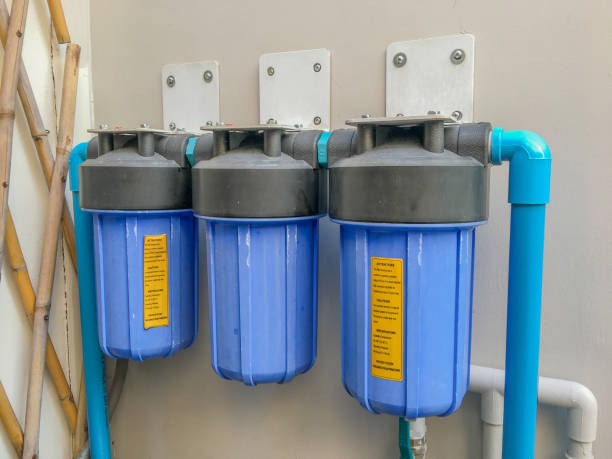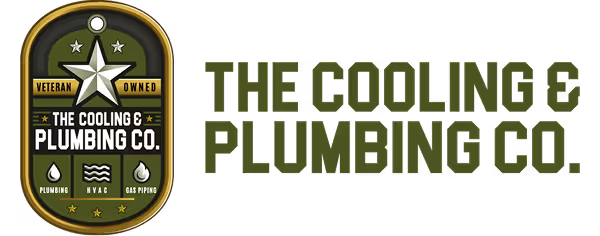Water Conditioner Installation in Chandler, AZ
Hard water is one of the most common plumbing headaches in Chandler, AZ. High levels of calcium and magnesium combined with hot, mineral-rich supply water accelerate scale buildup inside water heaters, dishwashers, faucets, and irrigation systems. Water conditioner installation in Chandler, AZ helps homeowners and businesses reduce scale, protect plumbing and equipment, and lower ongoing maintenance without some of the drawbacks of traditional salt-based softeners.

Why choose a water conditioner over a traditional softener
- Different outcomes: Traditional ion-exchange softeners replace calcium and magnesium ions with sodium or potassium, producing truly softened water. Water conditioners alter how minerals behave so they no longer form hard scale; they do not remove dissolved minerals.
- Lower maintenance: Many conditioners are salt-free and do not require regular salt refills or brine discharge management.
- No salt discharge: Salt-free systems avoid brine discharge concerns that can be restricted by local regulations or environmental goals.
- Preserve beneficial minerals: Conditioners keep calcium and magnesium dissolved in the water in a non-scaling form, preserving taste and nutrients while protecting plumbing.
Types of water conditioner technology
Understanding the technology helps match a solution to your water and household needs.
- Salt-free conditioners
- Use catalytic media to change mineral structure, reducing scale formation.
- Ideal for households concerned about salt use, irrigation and pool water, or people on low-sodium diets.
- Best where water hardness is moderate to high but iron levels are low.
- Template-assisted crystallization (TAC)
- Active media converts dissolved hardness into inert microscopic crystals that remain suspended and do not adhere to surfaces.
- Proven at reducing scale in water heaters and pipes with low ongoing maintenance.
- Works well for city water supplies with stable chemistry and for both residential and commercial applications.
- Electronic (or magnetic) descalers
- Clamp-on or inline devices that emit electromagnetic pulses to alter mineral deposition behavior.
- Non-invasive and easy to install; effectiveness varies depending on pipe material, water composition and flow dynamics.
- Good for supplemental protection where full-scale treatment is not feasible.
Suitability for various Chandler water chemistries
Chandler homes typically draw water from municipal supplies or private wells, and each source creates different priorities.
- City water: Often high in hardness with predictable chemistry. Salt-free conditioners or TAC systems are frequently effective and low-maintenance choices.
- Well water: May contain iron, manganese, sulfur, or variable hardness. Well water often requires a combined approach — iron filtration followed by a conditioner — to prevent staining and persistent scale.
- High TDS or acidic pH: If total dissolved solids or low pH are concerns, a full water analysis is necessary before recommending a conditioner; some situations may still call for reverse osmosis or targeted filtration.
Common water conditioner issues in Chandler, AZ tend to include untreated well iron, heavy scale in water heaters, and mineral buildup in irrigation and pool equipment. Proper selection and sizing reduce these problems.
Assessment and recommendation process
A professional assessment ensures the right system and reliable performance.
- Water testing: Measure hardness (grains per gallon), iron/manganese, pH, TDS and chlorine. Onsite or lab testing provides the baseline for recommendations.
- Usage and flow analysis: Determine household peak flow rates, number of fixtures, and business equipment demands to correctly size the conditioner.
- Plumbing layout review: Identify space for the unit, bypass valves, and access for service. Consider distances to appliances and water heaters.
- Match technology to needs: Recommend salt-free, TAC, electronic, or a hybrid approach (e.g., iron filter + TAC) based on test results and client priorities.
- Estimate maintenance and lifecycle: Explain media replacement intervals, filter changes if applicable, and expected performance timeline.
Installation steps (typical)
- Prepare the area and shut off supply. Install an accessible bypass valve so water can be routed around the system for service without disruption.
- Mount the conditioning unit and make plumbing connections to the main cold water line, positioning upstream of water heaters and major appliances for maximum protection.
- Flush the system to remove any installation debris and allow the media to bed in according to manufacturer instructions.
- Commission the system: verify flow rates, check for leaks, and ensure electrical components (for electronic units) are functioning.
- Leave system documentation and a basic maintenance schedule for the homeowner or facility manager.
Maintenance expectations
- Salt-free and TAC systems typically require minimal maintenance — occasional inspection and media replacement every 3 to 7 years depending on model and water quality.
- Electronic descalers have virtually no media to replace but should be checked annually to ensure clamps and electronics are secure.
- If pre-filters or iron filters are part of the system, these may need cartridge changes or backwashing on a regular schedule.
- Regular visual inspection of appliances and plumbing for reduced scale and routine service checks help preserve performance.
Benefits for Chandler homes and businesses
- Scale reduction protects water heaters, HVAC coils, and plumbing fixtures, helping restore or maintain system efficiency—especially important in Chandler’s hot climate where water heaters and irrigation run frequently.
- Lower maintenance means fewer repairs and less downtime for restaurants, laundromats, and commercial kitchens.
- Eco-friendly options that avoid salt discharge are better for landscaping, pools, and municipal systems.
- Improved appliance lifespan and reduced energy use when water heaters and boilers stay scale-free.
- Cleaner fixtures and fewer soaps scum result in less time spent on cleaning and lower use of harsh chemical descalers.
Choosing the right solution for homes and businesses in Chandler, AZ
- For typical single-family homes on city water with high hardness: TAC or salt-free conditioners often balance performance and low upkeep.
- For well-water properties with iron or sulfur: Start with iron/sulfur filtration, then add a conditioner to control scale and staining.
- For commercial sites with high flow and heavy equipment use: Size systems for peak demands; consider parallel or multi-tank setups and integrate prefiltration where needed.
- For households concerned about salt, sodium intake, or irrigation impacts: Favor salt-free or TAC systems that prevent scale without increasing sodium in discharge.
Selecting the right water conditioner starts with accurate water testing and a clear understanding of your household or business water demands. A properly assessed and installed system delivers effective scale control, lower maintenance, and longer life for plumbing and appliances — especially valuable in Chandler’s mineral-heavy water and hot climate.






